
Main Page
Interviews Menu
Alphabetical Menu
Chronological Menu
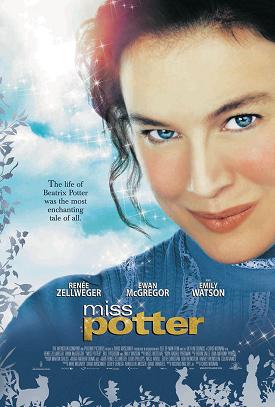
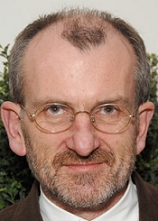
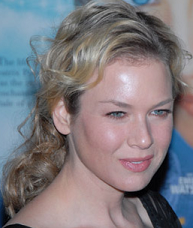
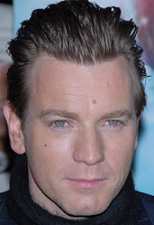
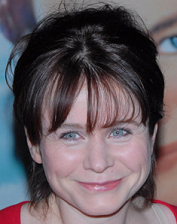
In Miss Potter, directed by Chris Noonan, Renee Zellwegger plays BeatriX Potter, a children's book author and illustrator who falls in love with Norman (Ewan McGreggor) and befriends his sister, Millie (Emily Watson), in the early 20th Century.martial arts tournaments in the 20th Century. This is director Chris Noonan's second feature film since directing Babe in 1995. I had the privilege to interview him together with Renee Zellwegger, Ewan McGreggor and Emily Watson. The Weinstein Company will release Miss Potter on January 5th, 2007. NYC MOVIE GURU: Chris, how long ago did you read the script? CN: I guess that would have been about three years ago that I first read the script. A lot of time passes with most films, and this was just the latter stages of the development of the film. It had been developed already for about five or six year by one of its producers and its writer. One has to be very patient in developing films. NYC MOVIE GURU: Chris, what took you 10 years to make another film after making Babe in 1995? CN: It's very hard to follow a success. It puts a lot of pressure on you and it makes you really want to follow it with something that's equally successful. I was offered many, many, many, many scripts in that period and every time I read one I got more down about what was on offer. NYC MOVIE GURU: Can you be more specific? CN: No, I'm not going to do that. I'm not going to slander films. But they all seemed to be very derivative, and that's sort of the nature of the film industry these days, it seems to me, maybe not so much right now, but in the last 10 years. It's very easy to get a film up that you can say, 'It's just like this film that was a success last year,' or 'It's a cross between these two films that were both successes last year,' than it is raising the money for a movie that is completely original and no one has ever seen anything like it before. That's the kind of thing I'm interested in more than I'm interested in remakes or rehashes of already made movies. So I found it very hard to find anything that I was interested in. I developed a couple of movies. I co-produced a movie in Australia for a first-time director and I kept looking and kept depressing myself by reading scripts. And this was the… I can't say it's the first script I read in that process that really moved me, but it was one of the first scripts I read that moved me because it seemed to be genuine. The emotions of the film seemed to be genuine. It seemed not to be a manipulative emotional film. It seemed not to just be pushing buttons. It seemed to be much more about the reality of life and I really, well, I shed a tear over the script and was immediately interested in it and pursued it from there. NYC MOVIE GURU: Ewan, what was it like for you and Renee Zellwegger to be together again after Down With Love ? EM: When Rene and I were making Down With Love, we had a fantastic time. And I think it’s safe to say [that] we are both really proud of it and loved it deeply, and we had a great deal of fun. But the comedy in the film was very specifically a kind of '60's type of comedy. I kind of wanted to play it although it went against the grain a little it, because nobody really plays comedies like that anymore. And it was difficult to learn and if you didn't' time it absolutely perfectly it didn't work. So, it was quite hard work and occasionally we would be struggling through a scene and look at each other and just go, 'Gosh, if we could just play it straight forward - a scene.' So, we talked about it and we both enjoyed working with each other very much kept in touch and then Renee called me up and said, and asked me to read this, which was exactly that. A lot more free flowing to it. Finding the scene in front of the camera. Its useful and its great fun to work with Renee again. It was a good time. RZ: It was hilarious, because you're working in a different way when you're doing stylized work like [in[ Down With Love.We had no point of reference about whether or not we nailed it because there's no way to tell. I'd go, "What do you think? Did we get it?" And he'd say, "I don't know. Do you think we got it?" "I don't know." (She laughs.) We thought how great would it be to just act and see what happens. Again, like he said, we were looking for some things (to do together), and then I read this script. Chris and I had been discussing our wish list of people, and right away, straight away, there was just no question in my mind. My plan was to beg and grovel shamelessly that these people would agree to participate – one, [Emily Watson], having just had a baby and not wanting to leave the house, and the other, [Ewan McGregor], who's perpetually booked no matter what because he's on everyone's wish list, too. So I read that scene where Beatrix and Norman are alone for the first time in her room, and there's so much subtext to that, so much meaning compacted into the tiniest little gesture. And I knew that Ewan would understand the delicate nature of that and the vulnerability that was necessary for that. He has such a gift for communicating those things honestly. It was just such an enchanting moment in my mind, and so it had to be him. I talked to Chris and Chris said, "Oh, yes, of course. Of course it has to be him." And that's when the begging began. Luckily, they came to play. Just to go further with it, that day on the set, it was mesmerizing, really. He was focusing on some technical things going on (something about keeping time to the music), dealing with that and had absolutely no idea, unbeknownst to him, the six-foot-seven steadicam guy, and Chris and myself and everybody in the room, we were just enchanted. It was more than I had imagined when I read the script. So, anyway, there we go. NYC MOVIE GURU: Does it take eccentricity for an artist to be creative? RZ: I'm sure eccentricity begets creativity. I had a lovely conversation with Ewan [McGregor] the other day about anything that might be strange about myself. I wish I had something to blame, and then I thought, "Oh, wait, I'm an actress." [laughs] Now it all makes sense. I don't know if one begets the other or which would come first. I have met a lot of actors and worked with a lot of creative people who need their medium. It's their basis and foundation, what helps them cope, how they channel their emotions or their inabilities to deal with other things. It's the way they communicate, an outlet. It gives them stability. It gives them purpose. I've met those people. I don't think I'm one of them. It's an important creative medium for me and it stops there. I don't know [if acting] is my first medium. It was more accidental, but it has become very important to me in my life and I do need it. I can't explain to you why. As far as my perceptions about Beatrix, I just imagined that she has such a rich imagination because she had such an isolated adolescence and that she was living within such rigid parameters that were set by her mother in terms of expectations that didn't interest her or didn't come naturally to her. That was my perception, anyhow, that she needed her [storybook] characters as a creative outlet. CN: I think Beatrix did need her creativity as an outlet because she was so restricted. She was so restricted in her expression in other avenues of her life, so restricted in her friendships by her parents. I think she turned to her writing. In a sense, she created her own friends, and she turned to her writing to create personalities that she could relate to and maybe even people that could talk back to her. But a lot of this is just conjecture. We researched her life pretty thoroughly and we filled a whole lot of gaps, and I can't tell you whether we made the right choices in filling those gaps. Her life is pretty well documented, but that only gets you to a certain point with anyone's life if it's in the past and who's now dead. NYC MOVIE GURU: Are there people alive who knew Beatrix Potter? CN: There are people alive who knew her, but they're very old people now. So you're piecing these things together from anecdotes and from bits of writing that you found, and so on. When you start talking about people's deep psychological motivations and so on, that's a very hard thing to conjure up when you look into the past. So you inevitably invent. You look at the evidence and you say, '”Now, what would it be that would be motivating her to do this?” and you invent something that would fulfill that necessity in her life and you conjecture that that's what it is, and then you assert to the world that that's what it was. I hope that we've made the right choices, but can't guarantee it. NYC MOVIE GURU: Were you familiar with Beatrix Potter’s books before reading the script? RZ: I knew a couple of her stories. I didn't know all of them. And I knew absolutely nothing about the woman. I remember the images as far back as I can remember anything at all. I remember Peter Rabbit being there. My mom read the books to my brother and I, but not all of them. There were other children's books and authors who were more prominent in our adolescence. CN: I never read her books when I was a kid. I was aware of her because of all that crockery with her characters on it. I knew people who had that crockery, but I didn't have any. So I had a relatively Beatrix-free childhood, I think. Perhaps that's why I'm so messed up today, you know; I didn't have that influence as a child. I don't know what else to say to you. I can't sort of fill in the gaps. EW: Yeah, we had them all. I read them all and loved them all and actually the copies that we had, had scribbling and writing that had been done by my aunts and uncles when they were children. So they were fairly common in British households. EM: Yes, I had them read to me I'm sure. I don't remember the stories particularly when I was a kid. Like Rene and all the rest of us, I was familiar with her illustrations – the images. And I supposed with Peter Rabbit, the Mr. McGregor reference kind of haunted me and my brother for a few years. [Laughs] It’s interesting that our parents would have had them read to them as well and possibly their parents as well so. I read them to my kids. NYC MOVIE GURU: Do you expect Miss Potter to appeal to a large audience? CN: [jokingly] Well, we had a lot of violence and sex in the film, but we cut that out. [seriously] You just make the film that you believe is going to bring some joy to people and that they'll find entertaining, and you hope that it finds its audience. I have no idea how big an audience this film will find. I have high hopes for it. One just trusts that your guesses are good for finding the audience, because you don't want to make a film that contains a number of messages and they're not received. You want to share your enjoyment in making a film with an audience and you hope they enjoy it as you've enjoyed making it. But there's no way of really predicting unless you're dealing in much more predictable genres than this. You know, if you're making a James Bond film, I think just the name Bond is going to guarantee you a big audience, but the name Beatrix Potter doesn't necessarily because there isn't a proven track record of Beatrix Potter reaching an audience. So we've just made the film that we loved, according to the ideas we felt were appropriate, and we pray that it will find its audience. That's all I can say. EM: I think it's interesting that you referenced the violence in films. I think there is a place for that. I really do. It's a very violent world and there is a lot of the world that just sits there and don't pay any attention to what we see on the news or what we read in the newspapers and in a way filmmakers, it can be a way to shake society and say look 'This kind of thing is going on.' I think there is a place for it as well. I don't think there's overkill. And maybe if there is a lot of violence in movies it’s because there needs to be. RZ: I don't think that people are cynics. I think we're cynical about manipulation and things that are disingenuous. We're very cynical about manipulation and I'm not sure that it's necessarily true that we're cynical about simplicity. I think if things are honest, I think that they're relatable. One of the things that we had discussed in the very beginning of this film was that there's a very fine line there, and this was not a woman who was overly sentimental. Chris, in a couple of scenes, we'd discuss it and I'd say, "Oh, Gosh, please just don't let me corny. Don't let me be corny. Don't let me be schmaltzy." And he looked at me and he said, "I don't do schmaltzy." I think that if you're talking about a film that's telling a human story that people will connect with, whether or not it's simple based on it being founded in truth. NYC MOVIE GURU: Do you consider Millie to be a feminist or a lesbian? EW: I think it’s very hard with us with our understanding of the way we view sexuality now to impose that on that time period. Obviously, there are famous known lesbians in and around that time, but I think probably that Millie has a crush on Beatrix because she's such a shining star. I think passionate friendship between women were a known thing. People used to write incredible letters and had passionate friendships but I don't think that's saying we should be judging relationships we have or categorizing it. If you turn around to Millie and said, 'It's a sexual thing. You're a lesbian.' She'd probably have been horrified but then in another day and age, she might be. I don't know. All these things are relative I guess. NYC MOVIE GURU: How did you meet director Chris Noonan? RZ: Chris and I and our friendship began over a conversation in a hotel lobby in Santa Monica, California, about that very thing. I was curious about it, having read the script, because I didn't believe in how it was being conceptualized on the page at the time. I was afraid of it. I thought it was gimmicky and kind of silly, and I wanted to hear what Chris' feelings about it were, and then so many other questions came up, and I could tell that there was so much to discussion. I thought [executive-producing] would be an interesting opportunity to learn how to collaborate creatively in a different way and to participate on a more substantial level, instead of just meddling and having opinions, making it legal to meddle and have opinions. I talked to the producers and I spoke with Chris and it just seemed like it would work. They said "yes" and it went from there. We just discussed things that I wouldn't usually participate in, in terms of the meetings and making decisions about things. I'd usually just have an opinion about it and maybe throw it out there, invited or not. I can't help myself. But in this case, we got together and we sat on many couches, many late hours in many hotels in different parts of the UK and threw everything on the table until the sun was coming up sometimes, to try and solve some problems. It was fantastic. I enjoyed it very, very much, very much. NYC MOVIE GURU: How did you control how much fantasy elements would be in Miss Potter? CN: That was a matter of fine judgment. The initial drafts of the script had a far more 'sophisticated' set of animations, much more dominant animations, which had Beatrix's drawings come to life on the page and then jumping off the page and into the real world came these 3-D CGI creatures, which would have required us assigning voices to the creatures. They were like fantasy characters. They were true fantasy characters. But we all felt, in fact, that the core of this film is a delicate series of human emotions and human relationships and that, for one, if we went that far into CGI and animation it would start making it look like, really, the key people in Beatrix's life were her animal creations and, two, that she was a bit crazy, that she imagines a rabbit jumping off the pages, standing next to her and she has a little conversation with it. Immediately, you think Beatrix is a little bit loopy. So we were pretty unanimous in feeling that a different approach was needed to that. But I felt that there was something very valuable in having her animations exist in their own right in the film because, as an artist, Beatrix gave expression to her inner life, to her psyche through her art and through her stories, and that having creatures that we could animate and even have conversations of a limited nature with her would give us access to her inner life. She was a very private person who wasn't one to talk about herself endlessly, by all account. So it gave us access to her without having to resort to the clumsier cinematic devices like having a voiceover of Beatrix saying, 'I was feeling very depressed at that' or 'This made me very happy.' They're clumsy devices and they tend to produce corny results, and we didn't want that. So then it was a process of finding the level of that animation and the style of that animation, and I was very strongly of the feeling that we should remain as faithful to Beatrix's artwork as possible, because they're beautiful drawings, her drawings, and to get beyond that would seem to be sacrilegious, in a way, if you're making a film about Beatrix Potter. So, we went on a search for animators and found this wonderful, wonderful woman who was born and brought up in the Lake District, who was a devotee of Beatrix Potter, who had been an animator on Roger Rabbit and was very thoroughly trained in traditional film animation. She didn't do any computer animation. And she was also a really lovely person with a wild style; like she had dreadlocks and piercings, not exactly what you'd think of as a Beatrix Potter devotee. But she was a Beatrix Potter devotee. Her name is Alyson Hamilton and she sort of stayed with the film from the early stages, from the time that we were designing the animation sequences, through to the very tail end and made a really great contribution, I think. So I had to deal with that in the editing and deal with the integration of that very delicately and with some wit, I think. I was anxious that they be introduced in a witty way rather than as a '”look at me, look at me. Aren't we clever doing this sort of animation?” way. So that was the aim. NYC MOVIE GURU: Do you think Millie’s independence reflects the way she truly feels? Her being a very independent woman, did you take that as being nice to her friend or really what she felt? EW: I think the lady doest protest too much. She's not this lady walking around declaring her manifesto—this is who I am and I'm not marrying you sort of thing. She does it with great fun and she's good fun and she thinks they had signed up for their sisterhood and then feels deserted. But I think it's all credited to the screenwriter, [Richard Maltby, Jr.]. Probably inside of her is the most horrible churning of “Oh my God, I've made such a fool of myself”. I think she's afraid of honesty and probably is lonely and wish life had been different. It's very difficult for us to imagine all that. Basically [she] lived with your parents 'til they died and then she lived with her brothers and went visiting for tea and that was it. Had love come her way, there is a real distinction. We didn't see marriage about love in that period. It would have been a financial transaction. In the heart of the film it's saying that love is the most important thing and go for it. NYC MOVIE GURU: Renee, which authors or books have inspired you? RZ: It changes, you know. I pick something up and find it completely inspiring because it's a different kind of prose. I love Carmac McCarthy's writing. I loved Charles Frazier. You could smell those words. I mean it's unbelievably rich prose. I like African-American writers and I like Southern writers. There are elements of the subculture that are exquisitely rich, just historically. There's a musicality to Langston Hughes' work that jumps off the page and it makes me need a pen. I need a pen. I need a pen. I need a pen. I need a pen. He's probably my favorite. And there's just so much emotion. It's kind of like in Latin cultures. You find this kind of passion for all elements of life. I find that the same in African-American writers, just this passion for things.. NYC MOVIE GURU: Renee, is this the type of movie your fans expect from you? Is it a conscious decision to make chick flicks? RZ: I don't think this is a chick flick at all. I don't think it's a chick flick. I think it's far more complex than that. It's not meant to be female entertainment. It's an important, important story, and it's a beautiful story, and I don't think I've met a guy yet who's seen it and didn't connect to it, or cried. It's just real. It's a human story, the most powerful kind of story, to take advantage of the impact this medium can have in terms of moving a person – making you self-aware in a way, making you recognize something different, making you question things, learning something, growing as a person. I don't think it's a chick flick. I think that underestimates it in a terrible way, and I don't think that's true, that there are people out there who have expectations of the stuff I do. And, no, it's not a conscious decision, but I'm curious, and I know that if I feel like I've been there before, I don't really have much interest in repeating myself and going there again. CN: I don't think it's a chick flick at all. It's a love story, and in the contemporary mores of Hollywood, if something's got violence in it and a lot of cursing or whatever it's seen as a male movie, and if something's got a love affair in it it's seen as a female movie. I think that's an incredibly limited way of looking at things. I know so many men who have watched this movie who have been moved to tears by it and have got a lot out of it. You know, the world has moved on, and I just think that's a very outdated way of categorizing movies. EW: I think it’s very difficult to ask a question of an artist to ask them to define themselves by their place in the market. I think it just doesn't make any sense. You do things, make things you love because you have to. When a director that you have admired for years calls and asks you to do it, you say ok, ok, ok. I don't really think about that stuff when you make choices on compulsion to have an interesting life. NYC MOVIE GURU: Renee, what’s your next movie? RZ: A psychological thriller, [Case 39], and [Bee Movie], an animated B movie with [Jerry] Seinfeld who is hilarious funny. NYC MOVIE GURU: What do you do to escape the stress of fame? RZ: I go to the gym and I run and I spend time to physically get it out [of my system]. Main Page Interviews Menu Alphabetical Menu Chronological Menu ______________________________________________________ |
The NYC Movie Guru
themovieguru101@yahoo.com
Privacy Policy